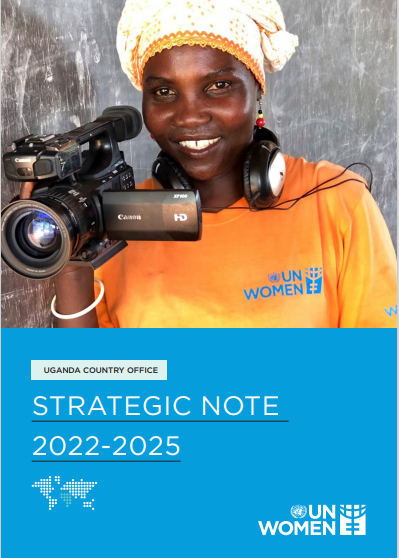
UGANDA COUNTRY OFFICE STRATEGIC NOTE 2022-2025

Uganda has made gains in its socio-economic transformation, maintained peace and stability for over 3-decades and is on course to become an upper middle-income country by 2040. The Government of Uganda (GoU) is committed to the SDG 2030 Agenda as exemplified by the gross domestic product which doubled over the last 10-years, from $17.2 billion in 2010 to $34.4 billion in 2019. Literacy rates improved from 70% between 2012-2013 to 74% between 2016-2017, yet still literacy levels were higher for males than females. Uganda’s National Development Plan (NDP) III focuses on inclusive growth, human wellbeing and resilience, transformational and inclusive governance positions. The NDPIII is a convergence framework for the entire UN System to coherently contribute to the advancement of Gender Equality and Women’s Empowerment (GEWE) in Uganda with UN Women as a strategic partner on the path to transformation.
Due to the concentration of women in the informal sector and rural economy, the country is faced with the risk of unequal economic growth for women. This has exacerbated by the COVID-19. Households spend up-to 63% of their budget on food, shelter, and health, while 23% is spent on education, transport, shelter, and communication. Women in self-employment- 39% and 28% in subsistence agriculture are more likely to be poor than those involved in other activities due to their reduced access to finance and services. Involvement of women in profitable economic value chains has been very low. When gaps in income widen, those being left behind are also losing out in terms of access to opportunity and resources essential for increased productivity along the value chains. Gender inequality and violence, including child marriage, early pregnancy, sexual harassment and technology-induced violence against women are manifested throughout the life cycle of women and girls in Uganda, despite a strong policy and legal framework to promote gender equality. The prevalence of gender-based violence is highest in ESA Region, with half of the female population experiencing spousal violence and 1 in 5 experiencing sexual violence